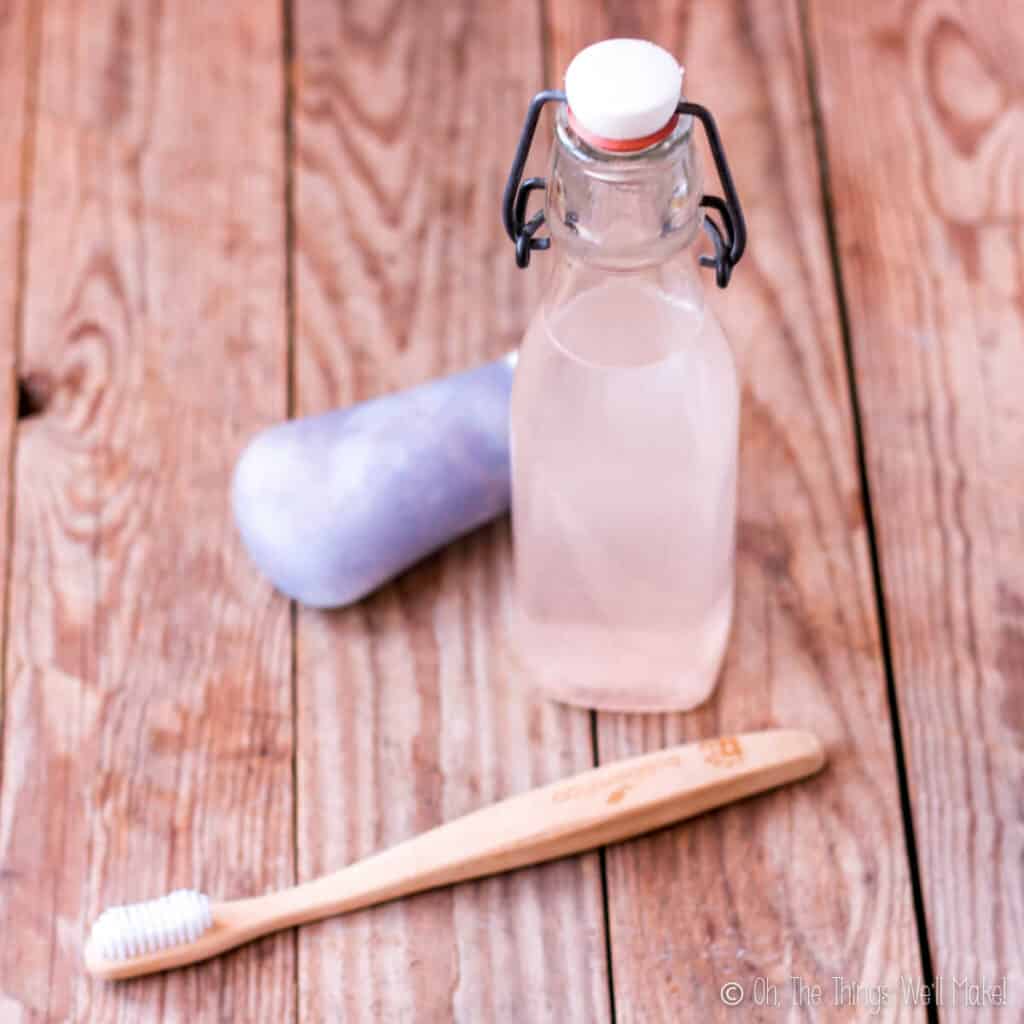
DIY Natural Mouthwashes for Freshening Your Breath
Hey everyone! So, you're looking for ways to freshen your breath naturally, huh? You're in the right place! We're ditching the harsh chemicals and artificial flavors of store-bought mouthwashes and diving headfirst into the world of DIY natural mouthwashes. Not only are these recipes gentler on your mouth, but they're often cheaper too! Let's explore some amazing options.Why Make Your Own Mouthwash?
Let's be honest, those brightly colored, intensely flavored mouthwashes can be a bit… aggressive. Many contain alcohol, which can dry out your mouth, leading to even *worse* breath in the long run! They also often contain artificial sweeteners and preservatives that some people are sensitive to. Making your own gives you complete control over the ingredients, allowing you to customize the recipe based on your needs and preferences (and avoid things you're sensitive to!). Plus, it's super satisfying to whip up your own natural remedies!
Essential Ingredients and Where to Find Them
Before we jump into the recipes, let's talk about the superstars of natural mouthwash ingredients. Most of these you can probably find at your local grocery store or health food store.
Water (duh!):
The base of any good mouthwash. Use filtered water for the best results.
Essential Oils:
These are potent little guys! A few drops go a long way. Tea tree oil has powerful antibacterial and antifungal properties, great for fighting bad breath-causing bacteria. Peppermint oil is a classic for its refreshing flavor and breath-freshening power. Clove oil also boasts antibacterial properties and a warm, spicy aroma. Lemon oil brightens up the mouth and has a lovely citrusy scent. A word of caution: always dilute essential oils properly, as they can irritate your mouth if used undiluted.
Salt:
Plain old salt is a fantastic natural antiseptic. It helps to reduce inflammation and kill bacteria. Just a small amount is needed.
Baking Soda:
Baking soda is slightly alkaline, helping to neutralize acids in your mouth which contribute to bad breath. It also acts as a mild abrasive, helping to gently clean your teeth.
Other Options:
You can also experiment with other ingredients like hydrogen peroxide (3% solution, diluted!), aloe vera juice (for soothing properties), and even a tiny pinch of turmeric (for its anti-inflammatory power). Always start with small amounts and see how it feels in your mouth.
DIY Mouthwash Recipes: Let's Get Mixing!
Here are a few of my favorite natural mouthwash recipes. Remember to always dilute essential oils properly!
The Classic Peppermint Mouthwash:
This one's a crowd-pleaser!
- 1 cup filtered water
- 1 teaspoon baking soda
- 5-7 drops peppermint essential oil
- 1/2 teaspoon salt (optional)
Simply mix all ingredients in a small container. Swish for 30-60 seconds, then spit and rinse with water.
The Powerful Tea Tree Mouthwash:
This one's great for tackling bad breath bacteria.
- 1 cup filtered water
- 3-5 drops tea tree essential oil (start with less if you're sensitive!)
- 1/4 teaspoon salt
Mix well and swish for 30 seconds, then spit and rinse.
The Soothing Aloe Vera Mouthwash:
Perfect if you have sensitive gums!
- 1/2 cup filtered water
- 1/2 cup aloe vera juice
- 2-3 drops peppermint essential oil (optional)
Mix and swish for 60 seconds, then spit and rinse.
The Citrus Burst Mouthwash:
For a zesty, invigorating experience!
- 1 cup filtered water
- 3-5 drops lemon essential oil
- 2-3 drops orange essential oil
- A pinch of salt (optional)
Mix and enjoy the citrusy freshness!
Important Considerations
Remember that these are natural remedies, not replacements for regular dental hygiene! You should still brush and floss your teeth twice a day and visit your dentist for regular checkups. Also, if you experience any irritation or discomfort, discontinue use and consult your dentist or doctor.
Don't expect miracles overnight. Consistent use is key to seeing improvements in your breath. And finally, remember that some underlying medical conditions can contribute to bad breath. If your bad breath persists despite good oral hygiene and natural mouthwashes, consult your doctor to rule out any underlying issues.
Frequently Asked Questions (FAQs)
Q: How long can I store homemade mouthwash?
A: Store your homemade mouthwash in a clean, airtight container in the refrigerator for up to a week. Essential oils can degrade over time, so it's best to make fresh batches regularly.
Q: Can I swallow the mouthwash?
A: No, definitely don't swallow the mouthwash! While the ingredients are generally safe, it's not meant for ingestion.
Q: What if I'm allergic to certain essential oils?
A: Always do a patch test before using any essential oil, especially if you have sensitive skin or a history of allergies. If you're unsure, it's best to choose a recipe that doesn't contain the oil you're allergic to.
Q: Can I use these mouthwashes for children?
A: It's best to consult your pediatrician or dentist before using these mouthwashes on children, especially those under the age of 6. Children's mouths are more sensitive, and the essential oils might be too strong.
Q: Are these mouthwashes effective against gingivitis?
A: While these mouthwashes have antibacterial properties, they are not a cure for gingivitis. Gingivitis requires professional dental treatment. These mouthwashes might help support good oral hygiene and reduce inflammation, but they should not replace professional dental care.
I hope this helps you on your journey to fresh breath! Happy experimenting!
Note: only a member of this blog may post a comment.